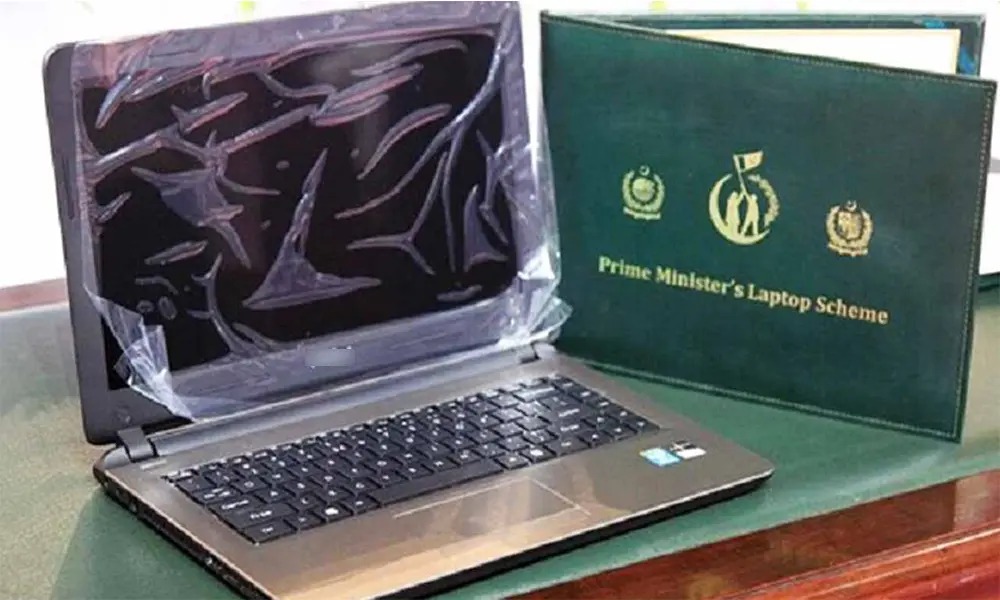By Eman Alam
ISLAMABAD: Minister for Federal Education and Professional Training Dr Khalid Maqbool Siddiqui on Tuesday chaired the 2nd meeting of the special committee of Prime Minister’s Laptop Scheme (Phase IV).
The meeting was attended by Chairman Prime Minister’s Youth Programme, Mr Rana Mashhood Ahmad Khan, Federal Minister for Public Affairs, Mr. Rana Mubashir Iqbal, Minister for Education, Balochistan, Ms. Raheela Hameed Khan Durrani, Former Chief Minister, Balochistan, Hafiz Hafeez ur Rehman, Former Deputy Speaker of the National Assembly, Mr Murtaza Javed Abbasi, Former Senator, Mr Nehal Hashmi.
Dr Khalid Maqbool Siddiqui said that the youth of Pakistan needs to be given the right tools so that they can help Pakistan develop with the pace of the first world.
He said that youth is the present and the future of our country. He said that Prime Ministers initiative to provide laptops to the youth of Pakistan will not only help the economy of Pakistan but will also enable the youth to be productive members of the society.
During the briefing, Dr Khalid was told that 1 lakh laptops will be disbursed and that this number has the potential to go upto 5 lakh laptops. All of the provincial representatives were taken on board for the SOPs developed for the disbursement policy.
Dr Khalid said that all potential measures are being taken to meet the assigned deadlines of the scheme. He said that Pakistanis have a renewed optimism in the wake of the recent developments and he had hoped that the Pakistani nation can convert the positive environment into something meaningful and productive.
Earlier, In a remarkable response, thousands of students have applied for the Prime Minister’s youth Laptop Scheme in the past few days, with the deadline for application set to expire on May 20.
According to official sources, the scheme’s website has seen a significant spike in traffic, with thousands of students successfully submitting their applications.
As part of the government’s efforts to promote education and innovation, PMLS Phase-IV is now officially open for applications.
The project aims to empower students by distributing 100,000 laptops to meritorious students studying at public sector universities across Pakistan.
The government has announced the eligibility guidelines for the laptop distribution scheme, ensuring a fair and merit-based selection process. According to the guidelines, students pursuing higher education in recognized public sector institutions are eligible to apply.
To qualify, students must be currently enrolled in PhD, MS/MPhil, Bachelor’s, or Master’s programs and meet specific academic requirements. A minimum CGPA of 2.80 or 60% marks is mandatory, while first-year students need to submit their HSSC marks.
MS/PhD students in their first semester are required to submit the results of their previous degree.
The distribution of laptops will also follow a quota system, with 18% reserved for students in Balochistan’s higher education institutions and 5% for distance learning students.
Within the distance learning quota, 2.5% will be allocated to Virtual University and 2.5% to Allama Iqbal Open University.
Importantly, only currently enrolled students are eligible, and those who have already graduated are not entitled to benefit from the scheme, even if they applied during their enrollment.
Laptops will be awarded based on inter-se merit within departments and degree programs, following a transparent selection process.
Students can register through Prime Minister’s Digital Youth Hub (DYH) App or Visit Prime Minister’s Youth Programme (PMYP) official website: www.pmyp.gov.pk, which is now live and operational.
All applicants are encouraged to apply early.
A 15-day window will be provided to raise any objections or grievances once the provisional merit list is published.
After addressing all concerns, the final merit list will be released.
The Prime Minister’s Laptop Scheme Phase-IV is more than just a government program but it’s a symbol of hope and investment in the future of our students. It recognizes that in today’s world, digital access is as vital as a textbook or a classroom.
The scheme, a flagship program of the Prime Minister’s office, has already started showing promising results, with thousands of students benefiting from the initiative. By providing laptops to talented and deserving students, the government aims to bridge the digital divide, foster innovation, and equip the next generation with the skills required to compete in the global economy.
The scheme’s implementation is being closely monitored, with a focus on transparency, efficiency, and merit-based selection.





